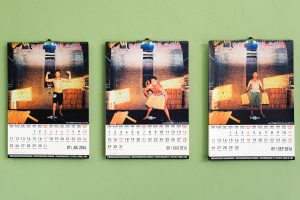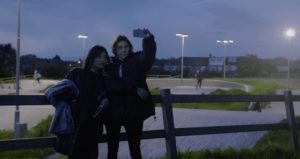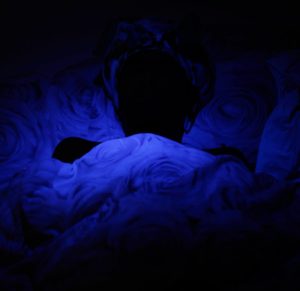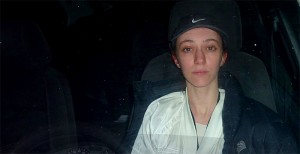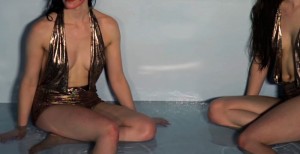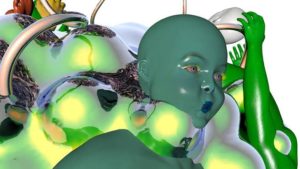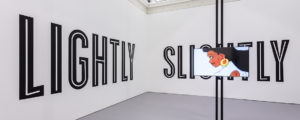Auto Italia’s latest project Immaterial Labour Isn’t Working explores how digital technology is changing our political selves. Over four weeks, contributors including activist Mark Fisher, publishers Metahaven and artist Ben Vickers, will engage in a self-organised school of talks, discussions and workshops provoking debate on contemporary issues. For example: How does the internet shape our thoughts? How could freelance culture prevent a revolution? And is there a new aesthetic taking shape?
Produced by Kate Cooper and Marianne Forest, who currently run Auto Italia along with Huw Lemmey, the show extends on the group’s tendency towards live research projects and collaboration. Last year, an Institute of Contemporary Arts commission saw an exploration of television as a format through a live broadcast. This year at Tate Modern, artists joined forces with Leslie Kulesh and Jess Wiesner to create It’s like staring someone out who’s not even looking at you, a film to mark Barbara Hammer’s retrospective. It was while involved with these projects –moving from one institutional space to another without a base –that they began to think about immaterial labour and the idea that, in the context of digital networks and the recession, how artists work, connect and live in London has changed.
Now, as Auto Italia move into a new space in King’s Cross –donated for a year by a building developer interested in supporting artist-run spaces –they also question their sense of autonomy in ILIW, the circumstances of ownership over their headquarters and, most importantly, what’s at stake. Specifically, what cultural capital artists have and what choices they can make in an economy that has little time or room for them.
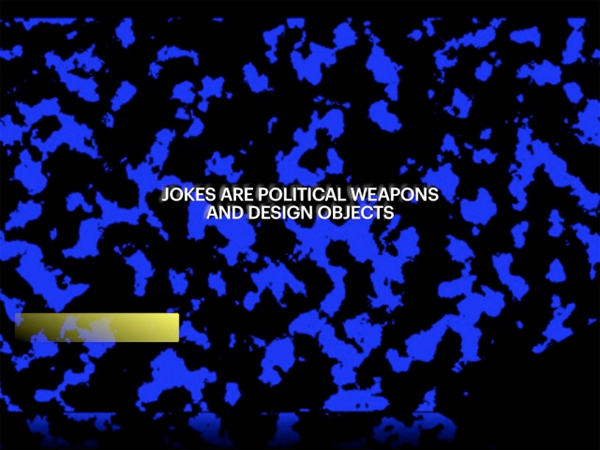
How did you select the artists involved?
Kate Cooper: I think we’re always very open to people we start a conversation with suggesting other people to bring in and that’s the way we’ve always worked on quite big collaborative projects. We did want to get some unusual speakers in, as well, and we wanted to open it up to people slightly outside of our comfort zone about things we weren’t completely experts on. It was also about us not just being focused on artistic labour but actually trying to encompass all creative workers. I feel like we tend to do lots of different jobs and wear lots of different hats, so we didn’t want to keep it art-centric, we wanted to really open it out.
Why is there such an emphasis on talks and workshops, rather than a physical exhibition?
MF: We’ve actually got Metahaven in one of our talks and together, Metahaven and Deterritorial Support Group (DSG), have produced a visual commission for us as well, which we’ve got installed in the space. It’s a kind of a book project they worked on together.
What kind of organisation goes into putting on an Auto Italia event?
MF: The nature of working with someone collaboratively is not just about inviting someone formally. It’s about starting conversations. Obviously, we try to put together different people in different sessions and different dialogues, so it was about introducing them to one another and allowing them to exchanging ideas.
I mean, there’s also a lot of practical preparation that has to be done, in terms of admin, and we’ve had to move into a new space and do building work. We’ve had to think about how we want to document the sessions, so people are doing recordings and then Kate and I are running Auto Italia… there’s the whole Auto Italia side of it, which involves a whole other side of admin. It involves press, it involves thinking about other projects… so there’s a huge amount going on and it’s a huge conversation.
KC: I think we’re also excited with this project because of what conversations might come out of it, so we worked really closely with Alex Andrews to make this micro-site. We started to publish texts around some of these ideas and see what kind of space we could make online to continue these conversations. We thought we would commission new works and work with artists through the site as well, so we’re almost interested in it as active research and what that might lead onto. I think this whole project is setting out these ideas with a whole group of people that could hopefully lead to new ideas and new ways of working. The session coming up this weekend is with Metropolitan Factory and it’s all going to be around workplace organising. How you organise freelance creative workers and what that may look like. I almost feel like doing the project is the start if you like.
Would you ever call yourselves curators?
KC: I can’t speak for Marianne but I definitely still see myself as an artist and would never call myself a curator. I’m really interested in exploring what artistic practice is and what we give artists permission to do and for what to work. No matter who you are and how you call artistic work, there’s a huge amount of admin that goes into work, as a creative worker or artist, so I feel like that can be quite frustrating for anyone, really. The amount of labour that goes into these things is huge, so I think that’s one of the motivations for this project, to really talk about that. There’s this quote by Martha Rosler, where she says, ‘I didn’t realise I’d become the assistant to the artist called Martha Rosler’. It kind of sums it up, where she’s an assistant to herself, which is hilarious, so we do talk a lot about how much admin we have to do.
What about you Marianne?
MF: My biggest problem, with working out what my job is, is that I don’t know what my job title is and I don’t feel that confident in picking one. In a way, it’s nice and freeing but it can also be quite confusing and frustrating, to not be able to clearly define to people what it is I do. We get to do so many different things; one day you put a production hat on and one day you put an artist hat on. There are so many different types of production we’re involved in all the time. I think you just have to embrace it and just see it all as creative production, as much as possible.
KC: I think the way we work sums up this project a bit. We don’t have clearly defined roles; they’re something we have to invent. I think that’s systemic of our whole generation. We all have to invent our job titles, invent our roles, invent what work is when we’re not working or maybe we’re working all the time. Maybe what we were doing as students we didn’t perceive as work but in reality is work.
All of these questions, and why we’re so excited about this project, is that we want to work some of this out for ourselves as creative workers. One of my frustrations is everyone we want to work with all have full-time jobs. Weekends and evenings are times that we have to work with people. Most people have to do other things around their full time jobs and, likewise, we have to be very flexible. When we’re in a project, we don’t have much free time to be honest, so that’s something we struggle with as well.
With Immaterial Labour Isn’t Working, would you say that the premise is that there needs to be more infrastructure in digital contexts?
MF: The title of the project suggests quite a provocative question and the purpose of all the sessions is to really try and discuss these different contemporary working methods, whether it be working freelance or all these different things. It’s really looking forward, not proposing alternative futures but asking those questions of what the actions are that can be taken or what these different conditions mean. It’s been a provocation to invite certain speakers, as well, with their topics but there’s such a wide range of topics in the sessions, approaches and different backgrounds of speakers with different interests.
How have you found negotiating technology as a medium while critiquing it?
Kate: I don’t know. I guess this is what we’re working out. I mean, this is obviously one of the provocations of the project, like ‘how do we do that’. I also think that some of these ideas were in the film we made for Artissima last year, about what effect digital technologies have on how we produce images and how we perform ourselves. So I think we’re definitely committed to some of these ideas. This is part of the project, working this out and having a conversation, because we definitely don’t know and we’re still grappling with it as artist producers.

